Join More Than 50,000+ Subscribers and get latest camera news and rumors
NEW CAMERA VIDEOS ON YOUTUBE
|
By admin, on March 2nd, 2025
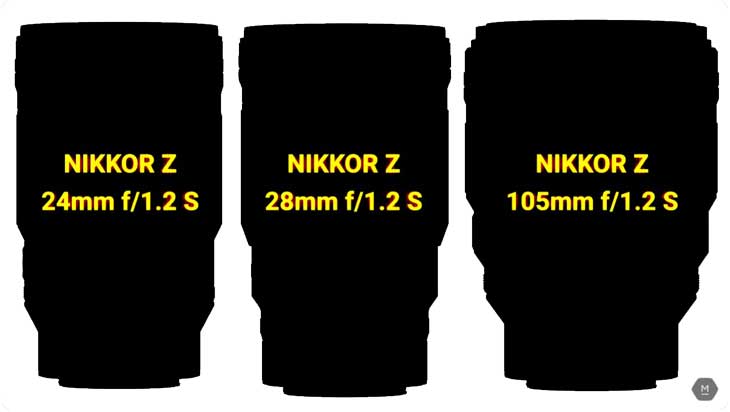
What’s next from Nikon specifically in F1.2 lenses? Matt Irwin Photography, we have some gaps in the wide range and the tele range, although we do have lenses like:
We already have lenses like Nikon 50mm, 85mm, and the recently announced 35mm F1.2 lens. [check Nikon F1.2 Lenses at B&H Store and Adorama]
So the next upcoming lenses should be 24mm F1.2, maybe 28mm F1.2 (28mm is less likely to happen), and finally the 105mm F1.2 S. Yes, we do have the micro edition of 105mm F2.8, but not the portrait one with an F1.2 aperture.
Once the lineup is complete, Nikon will have an elite series of F1.2 lenses for the desired bokeh. Not limited to that, we will see some additions to the Noct lenses shortly.
source Matt Irwin Photography
Nikon added Shutter angle and Waveform Monitor in Nikon Z6 III and Nikon Z8
List of Camera and Lenses Announced in CP+ Show 2025
Follow us on our social pages FACEBOOK | TWITTER | INSTAGRAM to get live Camera News + Nikon Rumors 24X7
By admin, on February 28th, 2025
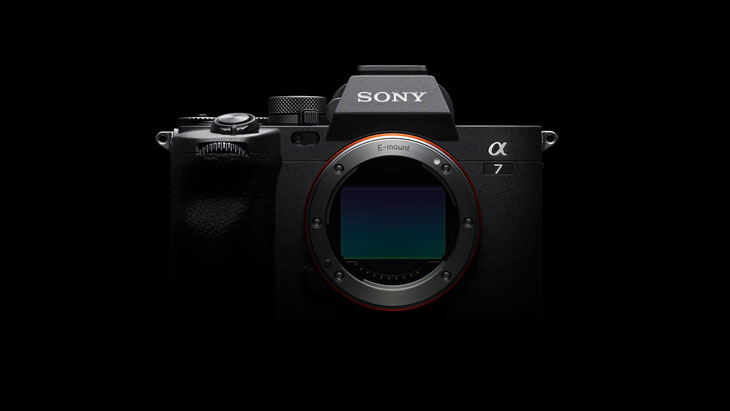
According to the latest coming from rumor mill, the Sony A75 camera has been delayed. Earlier, it was expected sometime in April 2025, but the recent information coming from trusted sources of the rumor mill suggests the camera will arrive sometime in late 2025.
The exact reason is not known yet, take a look at what the sources of the rumor mill said about the dealy
Source 1
The Sony A7V is ready but Sony is waiting for Canon R6III to make the first pricing move in this segment, and are willing to postpone the A7V launch if they have to.
Source 2
The Sony A7v will be delayed, unfortunately a lot.
It could be so bad that it won’t come until the end of the year, late autumn at the earliest. This is information I have received from the depths of Sony.
Source 3 (trusted source):
Sony is still having problems producing enough Sony A1II cameras. This is also a reason why they are waiting with the launch of the new A7V. The production of the A1II should reach the targets by the end of March/April.
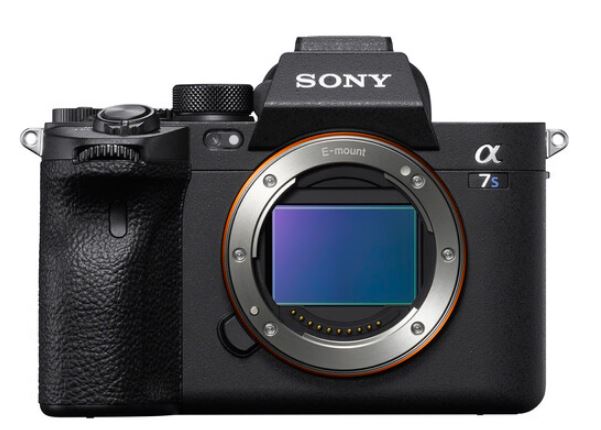
Sony A7S IV announcement this year
Now finally, one more important piece of information related to the upcoming camera—Sony will be announcing the A7S IV camera this year, and that’s the hint that we have received from the rumor mill. It’s not the A7R6 or the A75, which has been delayed, of course. We already have updates on the Sony A93 camera recently, which is not too old with a newer Global sensor and advanced processing power.
The only leftover series that actually needs an URGENT update in the consumer-level mirrorless lineup of cameras is the Sony A7S series, which has been continuously ignored and is still waiting for an update. So, we are expecting the arrival of the A7S4 this year. We will keep you updated as soon as we get any new information related to the upcoming camera.
Follow us on our social pages FACEBOOK | TWITTER | INSTAGRAM, If you have time –>see more Sony Alpha Rumor
source sonyalpharumors.com
By admin, on February 28th, 2025

Now we are summarizing the list of camera names and the lenses that have been announced on or before the CP Plus 2025. This table summarizes the CP Plus 2025 announcements. Without a doubt, the month of February was very exciting. We have seen the Panasonic S1R Mark II camera, the Canon PowerShot V1, and Nikon’s red camera-related announcement.
| Brand/Manufacturer |
Product |
Announcement Date |
| Viltrox |
AF 50mm f/2.0 Z (Nikon Z-mount) |
February 18, 2025 (pre-CP+) |
| Thypoch |
Simera 75mm f/1.4 (Nikon Z-mount) |
February 24, 2025 (pre-CP+) |
| Meike |
AF 35mm f/1.8 Pro (Nikon Z-mount) |
February 18, 2025 (pre-CP+) |
| 7Artisans |
24mm f/1.8 (Nikon Z-mount, others) |
February 27, 2025 (during CP+) |
| Venus Optics (Laowa) |
Multiple new lenses |
February 27, 2025 (during CP+) |
| Viltrox |
AF 135mm f/1.8 LAB (Nikon Z-mount) |
Mid-March 2025 (post-CP+) |
| Sigma |
300-600mm F4 DG OS Sports |
February 24, 2025 (pre-CP+) |
| Tamron |
“Big zoom lens” (Godzilla collab) |
February 27, 2025 (during CP+) |
| Canon |
PowerShot V1 |
February 20, 2025 (pre-CP+) |
| Nikon |
Nikon P1100 (bridge camera) |
February 2025 (pre-CP+) |
| Panasonic |
Lumix S1R II |
February 24, 2025 (pre-CP+) |
| Sigma |
Simga BF (full-frame mirrorless) |
February 24, 2025 (pre-CP+) |
| OM System |
Olympus OM-3 |
February 11, 2025 (pre-CP+) |
| Nikon |
Nikkor Z 35mm f/1.2 S |
February 11, 2025 (pre-CP+) |
| Nikon |
Nikkor Z 28-135mm f/4 PZ |
February 2025 (pre-CP+) |
| Sony |
16mm f/1.8 G |
February 26, 2025 (during CP+) |
| Sony |
400-800mm f/6.3-8 G |
February 26, 2025 (during CP+) |
Related post
Olympus OM3 Camera Announced | 25 Major Features | Price and Arrival Time | Official Press Release
Olympus OM-1 Mark II vs. Olympus OM-3
Panasonic S1R II vs Nikon Z8
Panasonic S1R Mark II Announced – Press Release
Sigma BF Camera: Revolutionary Tech or a Total Letdown? Find Out Now!
Sigma BF Camera Announced – Press Release
By admin, on February 28th, 2025
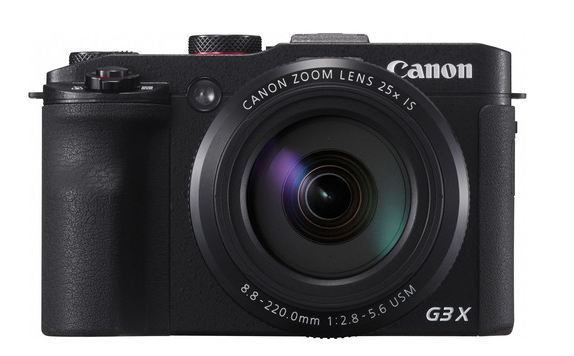
According to the latest rumors coming from the rumor mill, Canon is rumored to announce the Canon V3 camera, very similar to the Canon G3 X high-quality super zoom compact camera. It will carry forward the same sensor that we have seen in the Canon V1 camera—the 1.4-inch 22.4 MP sensor and an optical zoom lens.
The upcoming Canon V3 camera is also said to feature a built-in electronic viewfinder and a more photography-oriented design. This time, the camera will be more photography-core specs instead of videography. That means this time we will not see vents opening on the sides of the camera; rather, it will have a robust build with a deep hand grip and an EVF.
The expected arrival time of the camera is sometime in Q4 of 2025. Let’s hope for the best! We will update you as soon as we get any additional information related to the Canon V3 camera.
Get LIVE RUMORS –> FACEBOOK | TWITTER | INSTAGRAM to get live news + Canon rumors 24X7
CR.com
By admin, on February 27th, 2025
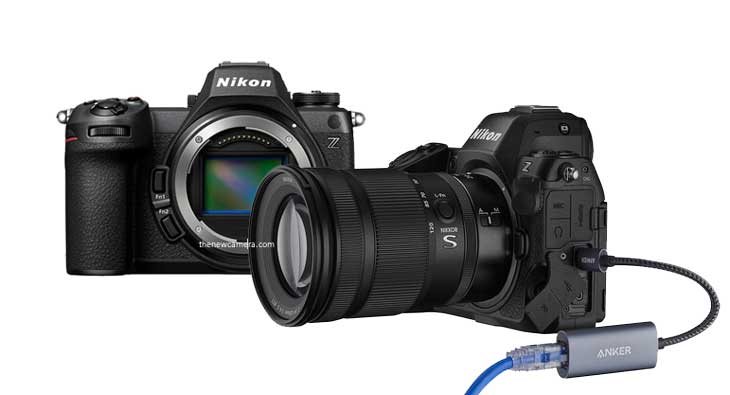
Due to the growing pressure of Panasonic’s recent camera announcement, models like S5, S5IIX, and S1R II intensifying the market competition with built-in professional video graphics features like an anamorphic de-squeeze setter, angle waveform, and a lot of features that professionals in videography would love to have in their cameras. But again, they also have some limitations, like the first generation of hybrid autofocus system, which is not as good as the other brands. But, the recent set of feature upgrades announced by Nikon for the Nikon Z6 III and Z8, give us a clear hint that Nikon is consdering Lumix as their main competitor, and upscaling their camera features o match or surpass Panasonic’s advanced videography capabilities, catering to both professional filmmakers and hybrid shooters.
Nikon’s Interest in Cinematography
We all know that Nikon is now more interested in cinematography since it acquired the RED camera division. It is a bit more serious about filmmaking and enhancing videography for cinematographic features in its consumer professional mirrorless cameras.
Nikon’s Recent Firmware Update
In addition to that, in a recent firmware update, Nikon has updated the N-Log of the Z6III, reducing noise in the dark areas of N-Log videos. They have mentioned this in the recent update, so it’s a kind of major update that UPSCALES the N-Log video recording of the Z6III camera.
Shutter Angle and New Features in Nikon Z6III & Z8
Apart from this major update, 15 steps of shutter angle from 5.6 degrees to 360 degrees have been added in the Z6III and Nikon Z8 cameras.
Apart from these two major updates, a lot of various custom control settings have been added, like selecting the color of the zebra pattern that includes black, grey, red, green, blue, etc. A waveform monitor—which was not available in the previous generation of their cameras—has also been added.
At the same time, high-resolution lossless zoom has also been added. If you are creating your videos and experimenting with your FX camera, then the digital high-resolution lossless zoom feature is available to you.
Download the latest Nikon Z6 III firmware update
Download the latest Nikon Z8 Firmware update
Follow us on our social pages FACEBOOK | TWITTER | INSTAGRAM to get live Camera News + Nikon Rumors 24X7
By admin, on February 26th, 2025
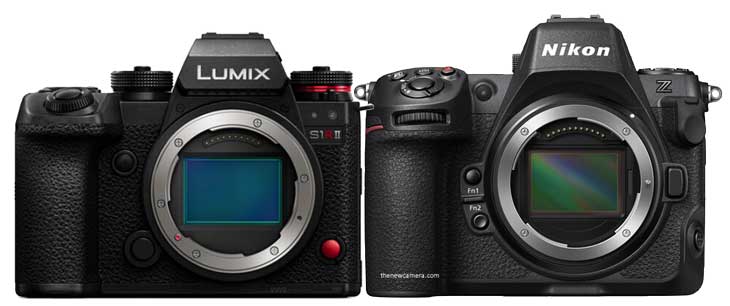
Panasonic S1R Mark II – Best for Landscape & Fine Art Photography
Let’s directly jump to the recommendations. Panasonic S1R Mark II camera is recommended for landscape and fine art shooters, and its specifications in indoor architecture suit well. The big reason is the higher resolution sensor and the ability to record higher resolution handheld modes, allowing you to generate 150+ megapixel images in a single handheld shot.
Buy and help us to visit the barista again Nikon Z8 B&H Store
Professional Cinematography & Open-Gate Recording
Now, the big thing is that if you are a professional cinematographer or videographer, then the Panasonic S1R Mark II camera may fit your needs more perfectly since, for professionals, we do have an option to record videos in open-gate format. Right now, with the basic settings, you are getting open-gate at 5.8K, but soon after a series of firmware updates, open-gate recording will become available up to 8K 30fps.
Why Panasonic S1R Mark II for Professional Cinematographers?
So why are we recommending the Panasonic S1R Mark II camera for professional cinematographers? Since we are getting wavefront functionality, we are also getting anamorphic lens recording support, so you can de-squeeze your footages in-camera, as well as options like false color, which helps you judge the level of accuracy in color tones while shooting.
Another important feature is the shutter angle, and the list doesn’t end here. You also get an option to directly record your videos on an SSD drive, so there’s no big issue regarding memory cards—you can simply replace your SSD when it’s full.
Panasonic S1R Mark II – Autofocus System & Its Limitations
The hybrid autofocus system is still in its development stage. The autofocus is reliable but requires expertise to handle the Panasonic AF system correctly. Otherwise, even people operating cameras for more than three years may struggle with it. The reason is very simple: it’s not a turn-and-go AF system.
So, when we talk about the best hybrid autofocus system between these two cameras, without a doubt, the Nikon Z8 is the best. We are not saying that the S1R Mark II is not usable—it is usable—but the precision, fastness, and readout speed due to the presence of stacked sensors, refresh rate, and subject detection, most of which are directly inherited from the Nikon Z9, make the Nikon Z8 a perfect camera for sports and wildlife photography.
Also, keep in mind that the autofocus tracking of the Panasonic S1R Mark II camera remains limited to 10 frames per second. So that’s the limit you get with the S1R Mark II, whereas there is no such limit in the Nikon Z8. The eye-tracking remains active even at 120 frames per second, and it works exceptionally well while using 30fps and 40fps modes of the Z8 at full resolution. The eye-tracking AF and exposure remain fully active.
Another thing to consider: The lens ecosystem
Now, you have to understand the lens ecosystem. The Z mount has been opened up, and we have a range of lens options available inside the Nikon system. That doesn’t mean the L-mount is lacking—L-mount also has a huge range of lenses—but Tamron is still not a part of the L-mount system. If you are a wedding photographer looking for a budget high-quality constant aperture lens, Nikon has options like the Tamron 28-75mm G2 lens for the Z8. At this price point, no equivalent L-mount lenses are available for the S1R Mark II. You have to pay extra to get an f/2.8 constant aperture zoom lens in the L-mount system.
So, should a wedding photographer buy the Panasonic S1R Mark II or the Nikon Z8?
If you are inclined toward the Panasonic S1R Mark II camera, you can buy it—it’s a good-to-go camera. But if we compare all the features offered by both cameras, the Nikon Z8 looks a bit more suitable with its faster stacked CMOS sensor, highly responsive hybrid autofocus system, and the huge range of Z-mount lenses available, especially budget-friendly high-quality lenses like the Tamron 28-75mm f/2.8 G2. All these factors make the Nikon Z8 a more feasible and recommendable camera for wedding photographers.
Autofocus Tracking & Frame Rate Comparison
- Panasonic S1R Mark II is limited to 10fps AF tracking.
- Nikon Z8 has no such limit—eye-tracking remains active even at 120fps.
- Works exceptionally well at 30fps and 40fps while maintaining full eye-tracking AF and exposure.
Lens Ecosystem – Nikon Z8 vs. Panasonic S1R Mark II
Now, you have to understand the lens ecosystem:
- Z mount is open—a wide range of lens options available inside Nikon’s system.
- L-mount also has a huge range of lenses, but Tamron is still not part of the L-mount system.
- Wedding photographers looking for budget high-quality f/2.8 lenses have Tamron 28-75mm G2 for the Nikon Z8.
- No equivalent budget-friendly f/2.8 zoom lens for L-mount—you have to pay extra for a constant aperture zoom lens.
A little more about the Nikon Z8 camera
The Nikon Z8 features a stacked CMOS sensor directly inherited from the Nikon Z9. Even the autofocus algorithm and image processor are exactly the same, making it essentially a flagship camera inside a compact Z8 body.
If you are interested in wildlife and sports photography and want rolling shutter-free images, the Nikon Z8 stands out despite the fact that many photographers still use conventional sensors. If you plan to shoot at higher frame rates with the Panasonic S1R Mark II at 30 or 40 frames per second, it’s a well-known fact that Panasonic struggles to track subjects continuously at high frame rates.
At the same time, the Nikon Z8’s sensor image stabilization system works at the pixel level with the help of AI advancements. If you consider all these factors, then the Nikon Z8 is without a doubt recommended for photographers looking for a perfect hybrid camera—especially those interested in wildlife and sports photography.
Final Verdict: Panasonic S1R Mark II vs. Nikon Z8
Who Should Buy the Panasonic S1R Mark II?
✅ Best for Landscape & Fine Art Photography – The high-resolution sensor and 150+ megapixel handheld mode make it ideal for professionals focused on fine details and large-format prints.
✅ Great for Cinematographers & Videographers – Open-gate recording (5.8K, up to 8K with updates), anamorphic lens support, false color monitoring, and SSD recording support make it a solid choice for high-end video production.
❌ Not the Best for Fast-Paced Shooting – The autofocus system is still in development, requiring expertise to operate correctly, and AF tracking is limited to 10 fps, making it less suitable for sports and wildlife photography.
❌ Limited Lens Ecosystem & Expensive Lenses – While L-mount has a good selection of lenses, Tamron, Viltrox, and many new third-party lens makers are not part of the system or have very few lenses for L Mount, making affordable fast lenses harder to find.
Who Should Buy the Nikon Z8?
✅ Best for Sports & Wildlife Photography – Stacked CMOS sensor (inherited from the Z9) enables fast readout, high-speed shooting, and advanced subject tracking. AF tracking remains active up to 120 fps, making it superior for action shots.
✅ Stronger Hybrid Autofocus System – Fast, precise, and reliable autofocus, with advanced AI-driven subject detection and Z9-level AF algorithms, makes it easier to use and more responsive.
✅ Expansive & Budget-Friendly Lens Ecosystem – The Z-mount system has a wide range of native lenses, including affordable high-quality options like the Tamron 28-75mm f/2.8 G2.
✅ Great for Hybrid Shooters (Photo & Video) – While it lacks open-gate recording, the stacked sensor, superior autofocus, and high-speed burst shooting make it a more versatile camera for both photo and video work.
Final Recommendation
- If you are a landscape, fine art, or professional cinematographer, the Panasonic S1R Mark II is a strong contender due to its high-resolution capabilities and pro-video features.
- If you shoot sports, wildlife, weddings, or need the best hybrid performance, the Nikon Z8 is the clear winner, thanks to its superior autofocus, faster shooting speeds, and larger lens ecosystem.
For most photographers and hybrid shooters, the Nikon Z8 offers a more balanced and versatile package. However, if high-resolution stills or advanced video tools like open-gate recording are your priority, the Panasonic S1R Mark II is the better choice.
Get the Panasonic S1R Mark II Camera from Adorama.com | B&H Store | Amazon.com
Panasonic S1R II vs Nikon Z8 – Specification comparison table
| Category |
Panasonice Lumix S1R II |
Nikon Z8 |
| – Sensor Type |
Full-frame BSI CMOS |
Full-frame stacked CMOS |
| – Resolution |
44.3 MP |
45.7 MP |
| – ISO Range |
40-102400 |
64-25600 (expandable to 32-102400) |
| – Color Depth |
14-bit |
14-bit |
| Autofocus System |
|
|
| – Type |
Phase + Contrast detection with DFD, AI-based |
493-point phase-detect AF / Faster AF Refresh rate due to the stacked sensor |
| – AF Points |
Not specified, but improved over previous models |
493 points (covers 90% of frame) |
| – Speed and Accuracy |
Fast, with AI tracking for subjects |
Fast and accurate, -7EV to EV19 sensitivity, -9EV with starlight view |
| – Subject Tracking |
AI-based for faces, eyes, animals |
Specific modes for birds, animals, vehicles, etc. |
| Video Capabilities |
|
|
| – Max Resolution and Frame Rates |
8K at 30fps, 4K at 120fps |
8K at 60fps (N-RAW), 4K at 120fps |
| Open Gate Recording |
5.8k Opengate (8K soon to be available via Firmware) |
None |
| – Formats |
H.265 10-bit 4:2:0 for 8K, ProRes 422 for lower resolutions |
N-RAW, ProRes RAW, H.265, H.264, 10-bit color |
| – Stabilization |
In-body image stabilization 8 Stops |
Pixel Level Accuracy – AI IBIS with Full sensor 8 Stops IBIS rating |
| Shutter angle |
Yes |
Yes |
| False Color |
yes |
No |
| – Audio |
Built-in stereo mic, external mic jack |
Built-in stereo mic, microphone, and headphone jacks |
| Waveform |
Yes |
Yes |
| Recording to SSD |
Yes |
No |
| Anamorphic |
Yes, it Supports Desqueez in the camera |
No |
| Shooting Speed and Performance |
|
|
| – Continuous Shooting Speed |
Up to 40 fps, but Active tracking works up to 10 fps |
Up to 120 fps (with crop), 30 fps full-res | 30 Fps full tracking |
| – Buffer Capacity |
Large, can shoot extended bursts |
Large, can handle extended bursts |
| – Shutter Speed Range |
1/8000 to 60s (assumed, typical for mirrorless) |
1/32000 to 900s (electronic), 1/8000 to 30s (mechanical) |
| Display and Viewfinder |
|
|
| – Viewfinder |
OLED EVF, 5.69m dots (assumed, similar to S5 II) |
3.69m-dot OLED EVF |
| – LCD Screen |
3.2-inch, 2.1m dots, articulated (assumed, similar to original S1R) |
3.2-inch tilting touchscreen, 2.36m dots |
| – Touchscreen |
Yes |
Yes |
| Connectivity and Wireless Features |
Wi-Fi, Bluetooth, smartphone app |
Wi-Fi, Bluetooth, Nikon SnapBridge app |
| Battery Life and Power |
|
|
| – Battery Type |
BLK-22 (same as S5 II) |
EN-EL15c |
| – Life |
~370 shots (assumed, similar to S5 II) |
~300-400 shots |
| – External Power |
USB-C |
USB-C |
| Physical Design and Ergonomic Features |
|
|
| – Size |
Smaller and lighter than the original S1R (over 200g lighter) |
Smaller than Z9, comparable to D850 |
| – Weight |
~800g |
910g |
| – Weather Sealing |
Yes |
Yes |
| – Ergonomic Features |
Classic DSLR-style shape, various dials and buttons |
Nikon-style layout, various controls |
| Lens Mount and Compatibility |
|
|
| – Mount |
Leica L-mount |
Nikon Z-mount |
| – Available Lenses |
Wide range from Leica, Sigma, etc. |
Wide selection of Nikon Z lenses |
Which One to Choose?
- For landscape, fine art, and professional cinematographers → Panasonic S1R Mark II (due to high-resolution mode & video tools).
- For sports, wildlife, and hybrid photography → Nikon Z8 (due to superior AF, stacked sensor, and high-speed tracking).
- For wedding photographers → Nikon Z8 (better autofocus, lens options, and hybrid usability).
UPDATE Feb 27 – Nikon added Shutter angle and Waveform Monitor in Nikon Z6 III and Nikon Z8
By admin, on February 25th, 2025
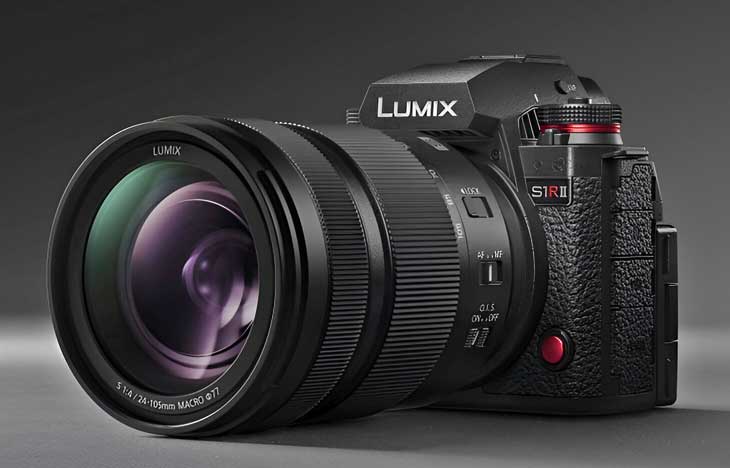
Panasonic announced a new S1 R Mark II camera that features a brand new 44-megapixel sensor, the camera features the recently developed Panasonic L2 processing engine that allows users to capture handheld images up to 177 megapixels with the help of sensor-shift image stabilization technology.
Panasonic S1R Mark II Major Features
- 44.3MP BSI CMOS sensor
- L2 processing engine
- 8K video recording with 14-stop dynamic range
- Improved Open Gate: up to 8.1K/7.2K (firmware update)
- Internal 5.8K recording in Apple ProRes RAW via CFexpress Type B
- Real-time Phase Hybrid AF with AI tracking (faces/eyes)
- Approx. 40 fps continuous shooting with SH pre-burst mode
- 8.0 stops IBIS; 7.0 stops in telephoto (Dual IS 2)
- Advanced EIS for distortion correction without cropping
- Tiltable and swivel screen
- Direct LUT installation via LUMIX Lab mobile app
- New LUMIX Flow app for streamlined workflow
- Integration with Frame.io and Capture One tethering support
Other than that, the camera is very capable of recording 8K video up to 30 frames per second with 14 stops of dynamic range. It also provides 5.8K internal recording in Apple ProRes and ProRAW format directly to a CF Express Type B card. The now features sensor stability IBIS up to 8 stops when combined with dual IS lenses.
The camera features a tiltable and variable display screen that enables creators to use this camera in their workflow, and also with the Lumix Lab app you can directly install LUTs in the camera with integration of third-party software like Frame.io. The workflow of professionals now become much easier.
Get the Panasonic S1R Mark II Camera from Adorama.com | B&H Store | Amazon.com
Specification comparison Panasonic S1R Mark II vs Panasonic S1 H vs Panasonic S1R
| Specification |
S1R II |
S1H |
S1R |
| Model |
S1R II |
S1H |
S1R |
| Sensor Resolution |
44 MP |
24.2 MP |
47.3 MP |
| Sensor Type |
Full-frame CMOS |
Full-frame CMOS |
Full-frame CMOS |
| Shutter Speed (Mechanical) |
1/8000 to 60 sec |
1/8000 to 60 sec |
1/8000 to 60 sec |
| Shutter Speed (Electronic) |
1/32000 to 60 sec |
1/32000 to 60 sec |
1/32000 to 60 sec |
| Continuous Shooting Speed (Mechanical) |
10 fps |
9 fps |
9 fps |
| Continuous Shooting Speed (Electronic) |
40 fps |
9 fps |
9 fps |
| Image Stabilization |
8 stops |
6.5 stops |
6.5 stops |
| Video Capabilities |
Open gate, 8.1K/7.2K Open Gate (via update), 1.5 seconds pre-capture |
6K 24p, 5.9K 30p, 4K 60p, 10-bit color, V-Log/V-Gamut |
4K 60p, 6K PHOTO mode (stills) |
| Price (approximate) |
$3,500 |
$3,500 to $4,000 |
$3,700 |
Panasonic S1R Mark II Official Press Release
Panasonic is proud to introduce the LUMIX S1RII, the latest high-resolution full-frame mirrorless camera in the LUMIX S series.
Equipped with a newly developed 44.3MP BSI CMOS sensor and a high-performance L2 processing engine, this camera delivers impressive photos and videos with the natural colour reproduction acclaimed in LUMIX cameras.
With revolutionary video performance, it is the first LUMIX camera to record 8K video with a 14‑stop dynamic range, expanding your creative possibilities.
The popular Open Gate function has been improved to now record 6.4K—and even 8.1K/7.2K via a future firmware update.
As the first camera in the LUMIX S Series, it supports internal 5.8K recording in Apple ProRes RAW HQ/ProRes RAW format using a CFexpress Type B card, enabling high‑quality video recording with minimal setup without the need for external devices or cables, and providing greater mobility for solo shooting and small‑scale productions.
The improved Real‑time Phase Hybrid AF, now with AI tracking, quickly and accurately detects people’s eyes and faces, and tracks movements smoothly.
With continuous shooting at approximately 40 fps and AF tracking, dynamic subjects can be captured with incredible accuracy and ease. SH pre‑burst mode starts shooting even before you fully press the shutter button, ensuring you don’t miss a shot.
The LUMIX S1RII achieves 8.0 stops of in‑body image stabilization—and 7.0 stops in the telephoto range thanks to Dual IS 2 technology.
Advanced video stabilization includes EIS distortion correction without cropping, reducing peripheral distortion while maintaining the original angle of view. The newly designed, compact body with a tiltable and swivel screen adapts to any working style, making it an excellent choice for those seeking both mobility and creative freedom.
The LUMIX S1RII will be compatible with the LUMIX Lab mobile app, which allows LUTs to be installed directly in the camera, streamlining the post‑production process.
A new LUMIX Flow app will also be introduced to optimize workflow for a variety of projects—such as short films, documentaries, music videos, and corporate promotional materials—offering features from storyboarding and recording to file organization. Additionally, the camera integrates with third‑party software such as Frame.io, and for the first time in a LUMIX camera, supports tethering via Capture One, aiding creators in diverse production situations.
Guided by our philosophy of developing technology that inspires creative passion, the LUMIX S1RII is a next‑generation mirrorless camera built for creators who want to realize their unique vision.
Newly developed matrix and next-generation processor
- It uses a newly developed full-frame BSI CMOS sensor with a resolution of approximately 44.3 MP.
- It features a 177MP (approx.) Handheld High-Resolution mode that precisely captures image detail and depth.
- It offers high-resolution recording that faithfully reproduces texture and fine detail, and for the first time in a LUMIX camera, supports 8K 30p *2 recording with 14 stops *1 of dynamic range.
- Supports internal recording at 5.8K in Apple ProRes RAW HQ / ProRes RAW to CFexpress Type B card.
Improved core performance
- Redefined Real-time Phase Detection Hybrid AF with improved eye and face detection and precise AI-based tracking.
- Improved 8.0-stop *3 in-body image stabilization (BIS) and newly developed EIS video distortion correction without cropping, which stabilizes the image while maintaining the original angle of view.
- High resolution and high-speed continuous shooting, offering high-speed shooting
- approx. 40 fps *4 with the electronic shutter mode “SH”, and approx. 10 fps *4 with the extended mechanical shutter mode “H+ (High Speed Plus)”, allowing you to shoot without having the preview image black out after taking a picture.
Advanced applications that support the production process
Compatibility with Capture One makes it the first LUMIX camera to work seamlessly
with the professional photo editing software commonly used in studio photography.
- Frame.io compatibility enables a seamless transition from recording to editing, as well as cloud file sharing and team collaboration.
- LUMIX Lab app support makes it easy to transfer, edit and personalise the colour of photos and videos, enabling seamless smartphone integration and sharing on social media.
- Support for the new LUMIX Flow app, which helps you create storyboards, control footage while shooting on set, and automatically organize data after shooting, streamlining the video production process.
- LUMIX Mode: Helps you create a storyboard, control footage while shooting on set, and automatically organize data after shooting, streamlining the video production process.
- Smartphone Mode: Enables video creation, such as scriptwriting and editing short fiction, documentaries, or dance films, using only your smartphone.
- External Monitor: Allows you to use your smartphone as an external monitor while recording, allowing you to quickly change and adjust camera settings right on your mobile device.
New DMW-BG2 battery holder
Panasonic introduces the new DMW-BG2 battery grip, designed to make holding the S1RII more comfortable when shooting vertically. The battery in the grip can be swapped while the camera is on. The grip also provides additional support by powering the camera when shooting in more demanding modes.
Additional information:
*1 When Dynamic Range Expansion (Log) is enabled.
*2 8.1K/7.2K Open Gate recording will be available via a software update scheduled for 2025.
*3 8.1K / 7.2K RAW HDMI output will be available via a software update scheduled for 2025.
*4 The continuous shooting speed may become slower depending on various conditions such as the lens in use, aperture, and shutter speed.
*5 Center: 8.0-deg; Peripheral: 7.0-deg. Based on CIPA 2024 standard [Yaw/Pitch/Roll direction: Focus distance f=60 mm when S-R2060 lens is used. 5-axis.]
*6 Center: 7.0-deg; Peripheral: 7.0-deg. Based on CIPA 2024 standard [Yaw/pitch/roll direction: focusing distance f=105 mm when S-R24105 lens is used. 5-axis.]
|
KEEP THIS BLOG ALIVE - Support New Camera Buy Canon Lenses, Buy Music CD or Digital Camera at amazon it helps this site, and you do not pay anything extra, it is just a way to help support this site.

|













